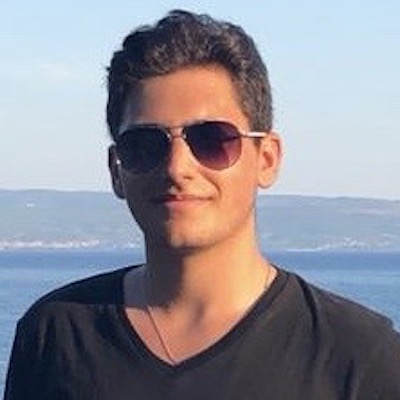Photo: Philafrenzy/Wikimedia Commons

The Palestine Society (SOASPS) at SOAS University of London released an open letter earlier this year demanding that the university’s academic board reject the International Holocaust Remembrance Alliance (IHRA) definition of antisemitism that the British government has asked universities to accept. Co-signed by a coalition of 50-plus SOAS student groups, the letter argues that the definition would seriously threaten free expression on campus by labeling any criticism of Israel as antisemitic.
As SOASPS’ letter does not specify a problematic clause in the definition, I will assume that the issue lies with the example that is most heavily protested by other anti-Zionist groups: “Denying the Jewish people their right to self-determination, e.g., by claiming that the existence of a State of Israel is a racist endeavor.” Note the use of “endeavor” and not “practice.” The example specifically avoids comment on Israeli governmental policy and goes on to explicitly state that “criticism of Israel similar to that levelled against any other country cannot be regarded as antisemitic.”
The IHRA definition reasonably suggests that antisemitism can have anti-Israel manifestations. It seeks to create clear red lines to protect the conversation from ulterior motives and gives legitimate criticism of state actions more intellectual force and authenticity, as it is less likely to be misconstrued as antisemitism.
The definition has already been accepted by many institutions in the United Kingdom, such as by the government in 2016, the Church of England, the Premier League, and many universities. An option that is ignored by SOASPS is what several universities such as the University of Cambridge have done to diminish any exploitative interference between IHRA and freedom of speech: including explicit clarifications “to ensure that freedom of speech is maintained in the context of discourse about Israel and Palestine, without allowing antisemitism to permeate any debate.”
SOAS students are making a mountain out of a molehill. Protests and debates are entirely justifiable as long as Israel isn’t treated unfairly. The IHRA framework safeguards healthy discourse by encouraging intellectual consistency. Yet, SOASPS wishes to block it outright, and is apparently unwilling to repurpose a fraction of the effort they are currently expending to block the definition to instead add a clause that dispels any potential misuse. These are poor optics for any Palestine Society, let alone one at a university already recognized by the Jewish community as one of the least welcoming in the United Kingdom.
“[The IHRA definition] seeks to create clear red lines to protect the conversation from ulterior motives and gives legitimate criticism of state actions more intellectual force…”
The letter also claims that the definition does not cover the “most insidious” forms of anti-Jewish hatred. I would invite members of SOASPS to answer two questions: What are the examples of antisemitism that would slip through the cracks? More importantly, how is no definition better? Currently, the SOAS website maintains that it is not the place for a university to define antisemitism (among other forms of racism). This decision has had extremely unpleasant ramifications upon the university’s Jewish community, from verbal abuse such as “the Jews should have chosen Uganda” to a SOASPS talk by Thomas Suarez deriding Zionism as a “racist, fascist movement” to vigils for and celebrations of terrorists who have killed Israeli civilians.
SOAS has a problem with antisemitism. Rejecting IHRA without even suggesting an alternative solution is worrying.
It is ironic that SOASPS, a group closely tied to the BDS movement, quotes SOAS policy on freedom of speech to maintain “academic freedom of inquiry,” “debate and discussion,” and “intellectual challenge.” This is remarkably hypocritical and contradictory coming from a movement that supports the financial and academic boycott of the State of Israel, routinely harassing and deplatforming Israeli speakers. What conversation are they preserving?
This is, of course, understandable, as campus Palestine Societies are by nature reductionist. They would have everyone believe in absolutes—that Israel is the evil oppressor and Palestinians the underdog protagonist, regularly drawing comparisons to Nazi persecution or apartheid in South Africa. When you refuse to accept the complexities of the Middle East conflict or recognize the legitimacy of views that differ from your own, why bother debating the other side?
I am sure many SOASPS members are well-intentioned. This oversimplification attracts students who simply wish to be conscientious. Unfortunately, they routinely fail to give the full story, leading many rational people with no ill will against Jews to hold beliefs with antisemitic foundations. If they can operate without infringing on the IHRA article, which they very much can, it will go a long way to boosting confidence and legitimacy in their claims and events.
Towards the end of the letter, SOASPS claims that the definition delegitimizes the Palestinian struggle and seeks to erase their history. The argument here is that the history and claim of the Palestinian people cannot coexist with a respect for the right of a State of Israel to exist. As demonstrated, I do not accept that the two are necessarily mutually exclusive, and they certainly have not proven this.
I don’t think the IHRA definition is a perfect one – few are. Although, I do believe that there is enough evidence here to show that its adoption is far better than its evasion. This is especially noteworthy when a few simple additions can effectively nullify the harshest grievance. The story here isn’t really about IHRA – it’s about the SOAS student community and its Palestine Society continuing to prove their unwillingness to accommodate for and cohabitate with the Jewish community.
A slightly different version of this article was originally published in jns.org.
Contributed by 2020-2021 University of York CAMERA Fellow Ethan Dayan.
